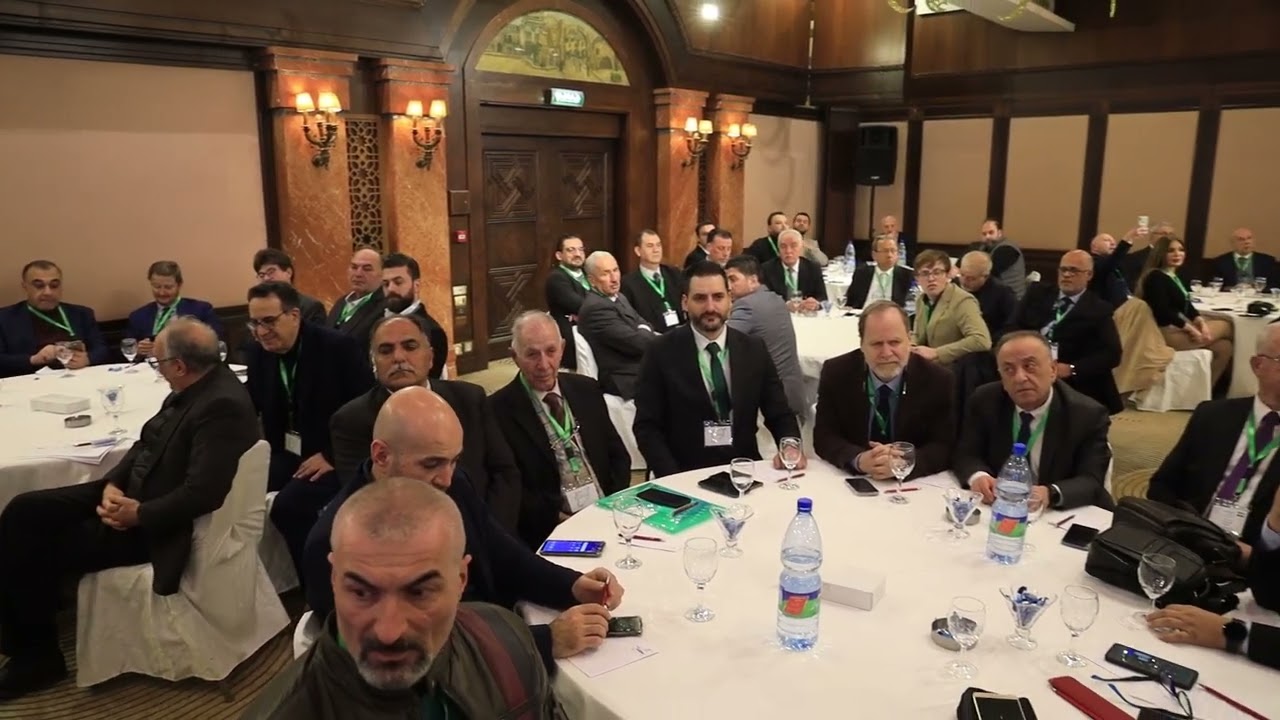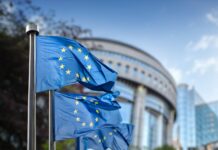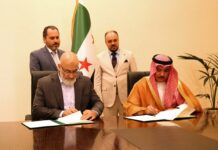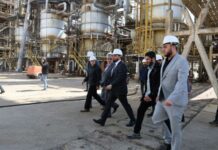
The Syrian government is ramping up efforts to revive the country’s economy and infrastructure, despite ongoing sanctions and financial constraints. At the heart of this initiative is the Syrian National Gathering (SNG), which held its first conference in Damascus after seven years of operating abroad. The event, attended by more than 100 prominent Syrian businessmen, underscored the critical role of economic revitalization in supporting refugee and internally displaced persons (IDP) returns.
Government-Led Economic Reforms
Syrian Finance Minister Muhammad Abazid, speaking at the conference on March 2, outlined the government’s strategy to attract investment and stimulate economic growth. He emphasized plans to develop a fair and transparent tax system that encourages private-sector participation while safeguarding public resources. Addressing concerns about privatization, Abazid clarified that the government aims to foster strategic partnerships rather than sell off state-owned enterprises.
Meanwhile, Agriculture Minister Muhammad Taha al-Ahmad highlighted Syria’s agricultural potential, citing the country’s strong output of wheat, pistachios, and olives, key commodities with high global competitiveness. He stressed that revitalizing agriculture could significantly contribute to economic stability and food security.
Sanctions Relief & Business Engagement
Mufid Karama, head of the SNG, stressed the need for a collective national effort in rebuilding Syria. “The (SNG) was established outside the country by patriotic businessmen, and now is the time to work inside to support the government and establish the principles of freedom, democracy, social justice, and the rule of law.”
Tamer al-Tunisi, a co-founder of the group, urged Syrian business leaders to leverage their international connections to push for lifting economic sanctions. He noted that while the former regime left behind a devastated economy, the new leadership has taken decisive steps toward reform, including cracking down on illicit activities like the Captagon trade and repealing exploitative economic policies.
Reconstruction & Refugee Returns
Reconstruction is seen as a crucial factor in facilitating the return of refugees and IDPs, many of whom remain displaced due to inadequate housing, employment opportunities, and basic services. Participants at the conference discussed the need for targeted relief efforts, with Munther al-Bizreh emphasizing the importance of immediate aid to affected families.
Judicial reform was also highlighted as a key priority. Dr. Musa Mitri argued that a stable legal framework is essential for long-term economic growth and investor confidence. On the financial front, Dr. Laila al-Samman stressed the importance of tax fairness to encourage domestic and foreign investments.
Economic analyst Haitham Joud posits Syria could achieve a gross domestic product (GDP) of over $70 billion if the government implements well-planned economic policies. However, sanctions and limited access to global markets remain significant obstacles.
Media’s Role in Reconstruction
Recognizing the importance of public perception, the SNG called for stronger media strategies supporting rebuilding efforts. Co-founder Iyad al-Najjar pointed to Dubai’s media-driven economic success as a model Syria could follow.
The conference concluded with the formation of specialized committees tasked with developing and executing reconstruction strategies. While the road ahead remains challenging, officials and business leaders expressed cautious optimism that economic recovery could pave the way for long-term stability and the return of displaced Syrians.








